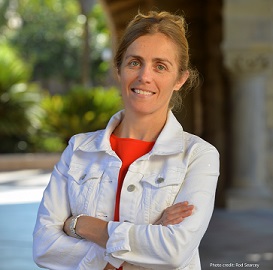Kosuke Imai, Harvard University
CCPR Seminar Room 4240 Public Affairs Building, Los Angeles, CA, United StatesMatching Methods for Causal Inference with Time-Series Cross-Section Data
Matching methods aim to improve the validity of causal inference in observational studies by reducing model dependence and offering intuitive diagnostics. While they have become a part of standard tool kit for empirical researchers across disciplines, matching methods are rarely used when analyzing time-series cross-section (TSCS) data, which consist of a relatively large number of repeated measurements on the same units.
We develop a methodological framework that enables the application of matching methods to TSCS data. In the proposed approach, we first match each treated observation with control observations from other units in the same time period that have an identical treatment history up to the pre-specified number of lags. We use standard matching and weighting methods to further refine this matched set so that the treated observation has outcome and covariate histories similar to those of its matched control observations. Assessing the quality of matches is done by examining covariate balance. After the refinement, we estimate both short-term and long-term average treatment effects using the difference-in-differences estimator, accounting for a time trend. We also show that the proposed matching estimator can be written as a weighted linear regression estimator with unit and time fixed effects, providing model-based standard errors. We illustrate the proposed methodology by estimating the causal effects of democracy on economic growth, as well as the impact of inter-state war on inheritance tax. The open-source software is available for implementing the proposed matching methods.
Co-sponsored with the Political Science Department, Statistics Department and the Center for Social Statistics


















